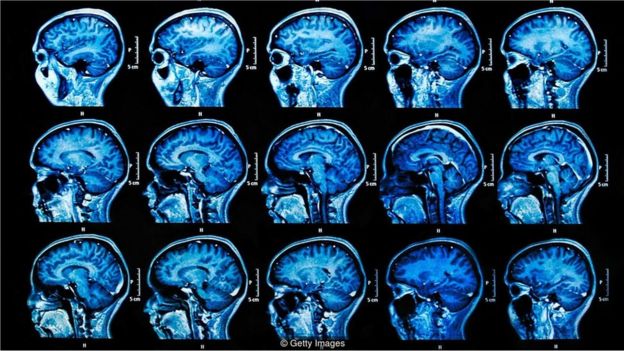
Health
Medicine
There is mounting evidence that herpes leads to Alzheimer’s
The same virus that causes cold sores appears to create lasting damage in the brain - a discovery that could suggest exciting new treatments for dementia.
More than 30 million people worldwide suffer from Alzheimer’s disease – the most common form of dementia. Unfortunately, there is no cure, only drugs to ease the symptoms.
However, my own research suggests a way to treat the disease. I have found the strongest evidence yet that the herpes virus is a cause of Alzheimer’s, suggesting that effective and safe antiviral drugs might be able to treat the disease. We might even be able to vaccinate our children against it.
The virus implicated in Alzheimer’s disease, herpes simplex virus type 1 (HSV1), is better known for causing cold sores. It infects most people in infancy and then remains dormant in the peripheral nervous system (the part of the nervous system that isn’t the brain and the spinal cord). Occasionally, if a person is stressed, the virus becomes activated and, in some people, it causes cold sores.
HSV1 enters the brains of elderly people as their immune system declines with age
We discovered in 1991 that in many elderly people HSV1 is also present in the brain. And in 1997 we showed that it confers a strong risk of Alzheimer’s disease when present in the brain of people who have a specific gene known as APOE4.
The virus can become active in the brain, perhaps repeatedly, and this probably causes cumulative damage. The likelihood of developing Alzheimer’s disease is 12 times greater for APOE4 carriers who have HSV1 in the brain than for those with neither factor.
Later, we and others found that HSV1 infection of cell cultures causes beta-amyloid and abnormal tau proteins to accumulate. An accumulation of these proteins in the brain is characteristic of Alzheimer’s disease.
We believe that HSV1 is a major contributory factor for Alzheimer’s disease and that it enters the brains of elderly people as their immune system declines with age. It then establishes a latent (dormant) infection, from which it is reactivated by events such as stress, a reduced immune system and brain inflammation induced by infection by other microbes.
Reactivation leads to direct viral damage in infected cells and to viral-induced inflammation. We suggest that repeated activation causes cumulative damage, leading eventually to Alzheimer’s disease in people with the APOE4 gene.
Presumably, in APOE4 carriers, Alzheimer’s disease develops in the brain because of greater HSV1-induced formation of toxic products, or less repair of damage.
New treatments?
The data suggest that antiviral agents might be used for treating Alzheimer’s disease. The main antiviral agents, which are safe, prevent new viruses from forming, thereby limiting viral damage.
In an earlier study, we found that the anti-herpes antiviral drug, acyclovir, blocks HSV1 DNA replication, and reduces levels of beta-amyloid and tau caused by HSV1 infection of cell cultures.
It’s important to note that all studies, including our own, only show an association between the herpes virus and Alzheimer’s – they don’t prove that the virus is an actual cause. Probably the only way to prove that a microbe is a cause of a disease is to show that an occurrence of the disease is greatly reduced either by targeting the microbe with a specific anti-microbial agent or by specific vaccination against the microbe.
Excitingly, successful prevention of Alzheimer’s disease by use of specific anti-herpes agents has now been demonstrated in a large-scale population study in Taiwan. Hopefully, information in other countries, if available, will yield similar results.
皰疹導致老年癡呆——證據越來越充足
文章來自對話網(The Conversation)阿爾茨海默病(又稱老年癡呆,譯者注)是最常見的癡呆症,全球有超過3000萬人患此病。不幸的是,該病目前無法治癒,只能依靠藥物緩解症狀。
但我的研究找到了治療方法。我發現了迄今為止最有力的證據,表明皰疹病毒是該病的病因之一,這說明安全有效的抗病毒藥物可能能夠治療老年癡呆,甚至可以給孩子們接種疫苗來預防。
造成老年癡呆的病毒,即單純皰疹病毒1型(HSV1),通常被人們熟知的症狀是唇皰疹。大多數人會在嬰兒期受到感染,病毒隨後在周圍神經系統(腦神經和脊髓神經以外的神經系統)中保持休眠狀態。有時如果壓力大,病毒就會被激活,有些人就會出現唇皰疹。
我們在1991年發現,許多老年人的大腦中也有HSV1病毒。在1997年又證明,腦中攜帶APOE4基因的人患有老年癡呆的可能性會更大。
皰疹病毒有可能在大腦中活躍起來,還可能會反復活躍,從而不斷累積損傷。腦內有HSV1病毒的APOE4基因攜帶者,患老年癡呆的機率是非病毒及基因攜帶者的12倍。
後來,我們又和其他研究者發現,細胞感染HSV1病毒會導致β-澱粉樣蛋白和異常的τ蛋白積累,而這些蛋白在大腦中積累就是老年癡呆的特徵。
 GETTY IMAGES
GETTY IMAGES
我們認為,HSV1病毒是老年癡呆的主要原因,它會隨著老年人免疫系統逐漸衰退而進入大腦,之後潛伏腦中,處於休眠狀態。當出現壓力,免疫系統減弱,或是受其他微生物感染誘發腦炎時,被重新激活。
病毒被激活會直接損傷受感染的細胞,誘發炎症。反覆激活會累積損害,最終導致攜帶APOE4基因的人患上老年癡呆症。
我們推測,APOE4基因攜帶者出現老年癡呆症是由於HSV1病毒引起的毒性物質較他人更多,或是損傷修復的比較少。
新療法?
數據表明,抗病毒藥物可以用於治療老年癡呆。主要的抗病毒藥物是安全的,可以防止新病毒形成,從而控制病毒的損害。
我們在早前的一項研究中發現,抗皰疹的抗病毒藥物阿昔洛韋能夠阻斷HSV1病毒複製自身DNA,從而降低受HSV1病毒感染的細胞中β-澱粉樣蛋白和τ蛋白的水平。
值得注意的是,所有研究,包括我們的研究,只是說明皰疹病毒和老年癡呆有聯繫,但並不能證明皰疹病毒就是真正病因。證明微生物是不是病因,唯一的方法可能是使用特定的抗菌劑,或是接種針對性的疫苗,看看能否顯著減少這種疾病。
但令人興奮的是,在台灣,已經有大規模樣本的實驗證明,使用特定的抗皰疹藥物能夠預防老年癡呆。希望其他國家/地區如果有這方面的實驗,結果也是如此。
請訪問 BBC Future閲讀 英文原文。

沒有留言:
張貼留言